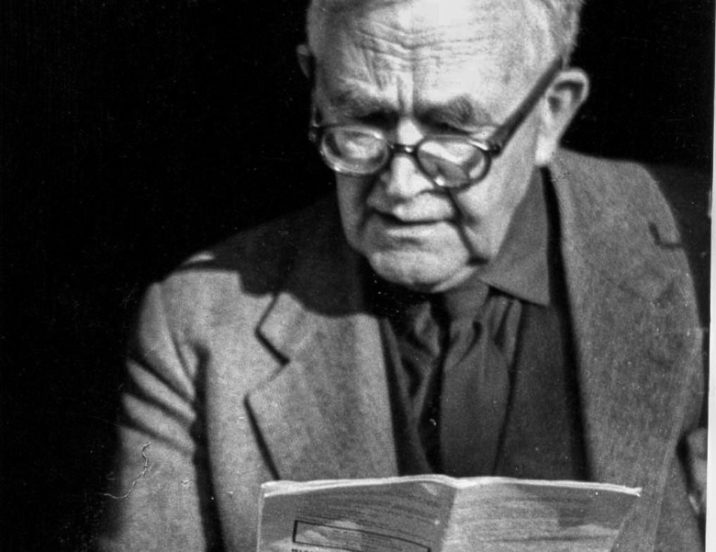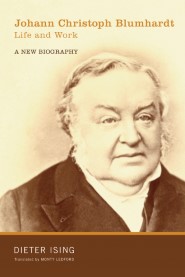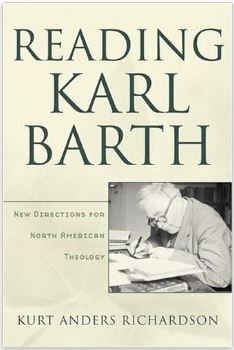In this final post on Barth’s view of Scripture, I present a critique of the Evangelical interaction with Barth’s theology presented in the previous post. First, however, it is important to deal with the issue of Scripture being witness to the Word of God.
While evangelicals often pay close attention to those particular areas in Barth that deny infallibility and inerrancy, they sometimes fail to note where he affirms Scripture’s authority and infallibility. Morrison writes,
Barth’s intent is first to emphasize that what Scripture is, is defined by the will of God declared in his act of giving it to the church. This means that where and when Scripture “becomes” the Word of God, it is only “becoming” what it already is. But, second, where and when Scripture does not ‘become’ the Word of God, there God has chosen to provisionally not bear to witness to himself to this or that particular reader.1
What then is to be done with Barth’s statements? While difficult, it must be understood that to comprehend Scripture in its totality is an impossibility, for if it truly is a witness to revelation, then it in turn becomes the very words of God. For Barth, Scripture mirrors Christ’s nature in that He is both true God and true man. Not one or the other, or a mixture of both, but both true God and true man in one person.
This has practical implications that evangelicals must not be afraid of, for if they choose not to accept it, they make themselves guilty of obscurantism.
Carson and Woodbridge
Carson and Woodbridge’s statements regarding Barth’s logical fallacy concerning the nature of man also warrant further interaction. While their statement is true enough it is important to point out that it is equally false to presume that the God of the universe, in involving humanity, did not intend for Scripture to be fallible in and of itself and that only through encounter make Himself known to His people.
In fact, this follows the biblical model for how God has interacted with humanity throughout the Bible’s own history. When is it ever seen in Scripture that revelation or the truth of God can be revealed apart from his presence?
Moses did not decide to go to Egypt of his own accord thinking it right, God himself commanded him to go from a burning bush (Ex. 3:1-4:17).
Gideon when defeating the Midianites was told that his army was too large, even when at its highest numbers it only numbered in the tens of thousands whereas the Midianite army numbered in the hundreds of thousands. God in fact took more of their number until they stood at 300 men (Judg. 7:1-8).
Why was this done? To bring glory to the Lord! So, why would God use a fallible record as witness to His revelation…because it cannot and will not occur without his help!
And this is not just in dealing with the Holy Spirit’s inspiration at the time of writing but also includes the activity of God in the here and now amongst his people.
Ramm’s Defense of a “Fallible” Bible
Ramm gives four defenses for an understanding of Scripture as fallible (or at the very least in need of a new definition, as well as reconsidering the word inerrancy as it lacks historical theology authenticity). These four defenses are as follows: the canon was decided upon by human beings; the autographs that are currently unavailable are considered and created on purely human terms and critiques of extant copies and manuscripts; the human decision of how much of the Old Testament is still applicable to the church today; and finally the endless human decisions on the part of the interpreter as they exegete a text.2
Perhaps the most interesting among all of these is the selection of the canon. Currently there are numerous canons of the biblical text. If Scripture is indeed inerrant, then whose canon is inerrant? Are evangelicals equipped to answer that question? Ramm puts it nicely when he writes,
To believe that Barth creates problems in his view of Scripture from which evangelicals are free is simply not the case. Every evangelical who interprets Scripture is caught in the web of decision making – human decision-making. There are no divinely given answers to the questions of canon, text, and interpretation of Holy Scripture. It is a venture of grace and scholarship for all of us.3
When evangelical scholars are training their pupils, they stress the importance of proper hermeneutical technique regarding ancient languages, cultures, and philosophies. Not only this but they are also schooled in form, genre, and source criticism, which when left to their own devices can easily wreck an evangelical theology, if not checked by Barth’s understanding of encounter.
Language
Another reason inerrancy is not a tenable doctrine is because it denies current understandings of language. Packer attempts to explain how a perfect transcendent God communicates his very being in an entirely verbal and inerrant way. These arguments are less than impressive.
According to Ramm, the disregard for modern language studies and a lack of understanding regarding linguistic communication suggests that perhaps evangelicals have become far too “Hegelian,” in that they attempt to presume some form of a perfect conceptual language.4 This of course is nonsense as anyone (including evangelicals) admits, knowing that not one manuscript or Bible that is currently in our possession is inerrant since none of them are the originals. Therefore, the church is heavily dependent upon the very human work of text criticism and reconstruction of the text through extent copies.
It is worth noting that Barth has also been charged with Kantianism, by Morrison no less.5 However, out of the 40 times Kant is mentioned in Barth’s Church Dogmatics he is thoroughly criticized.6
Barthian Epistemology
One of the common charges against Barth is his alleged philosophical presuppositions. Many have charged Barth with being more of a philosopher than a theologian. Eduard Thurneysen warns those who see Barth as a philosopher, a system builder, or a metaphysician, and not an impassioned interpreter of the Bible, will wind up completely misinterpreting him.7 In fact, in his magnum opus Church Dogmatics, Barth cites Scripture 15,000 times with an estimated 2,000 exegetical expositions, which is more than any other theologian in the history of the church.8
Conclusion
To conclude, the reason that the work of Barth on the Word of God is so important for the evangelical church today is because it is essentially (and practically) where it already stands. In fact, in Beale’s own book he states various explanations of Old Testament texts that would make past theologians adhering to inerrancy, like Hodge and Edwards, call modern inerrantists heretics.
While Barth’s complete understanding of Scripture need not be assimilated, it would be wise for evangelicals as a whole to reexamine their bibliology in light of Barth’s formula. In doing this, evangelicals show themselves willing to reconsider their own doctrines in light of new evidence. While Christian faith surely cannot sway every time a new or novel idea comes around, it is necessary to be sure that preconceived notions regarding epistemology and philosophy have not dimmed the church’s glasses too dark.
This is where Barth’s bibliology truly shines brightest, for according to Barth’s model the church can never be compromised if the Holy Spirit Himself sustains her understanding of God through the Scriptures becoming the Word of God. In this, God is still actively speaking to His people, He is still intimately involved, constantly interacting with us in time and space. Such a prospect is not only biblically consistent with Scripture’s own view of its activity but is also preferred theologically.9
If God has stopped speaking, stopped revealing, stopped interacting with human persons, then how is the church any different from Israel? How is she indwelt with the very Spirit of God if He, is in fact, absent from her? These questions and many more would need to be settled by evangelicalism before Barth’s model could be completely done away with.
Keep Reading
Karl Barth’s Doctrine of the Word of God: Part 1 of 3
Evangelical Critiques of Barth’s View of Scripture: Part 2 of 3
Related Resources
Has God Said? Scripture, the Word of God, and the Crisis of Theological Authority
Regular price:
- Morrison, Has God Said, 159.
- Ramm, After Fundamentalism, 106.
- Ibid., 107.
- Ibid., 90.
- John D. Morrison, “Scripture as Word of God: Evangelical Assumption or Evangelical Question,” Trinity Journal 20, no. 2 (Fall 1999): 183.
- Ibid., 34.
- Eduard Thurneysen, “Die Anfänge,” In Antwort, 832-414.
- Ramm, After Fundamentalism, 34.
- The activity of the Spirit dwelling, filling, and empowering the believer has within it the breadth of revelation. Anytime that humanity experiences God it does so at God’s discretion and because of this it says something of who God is.









